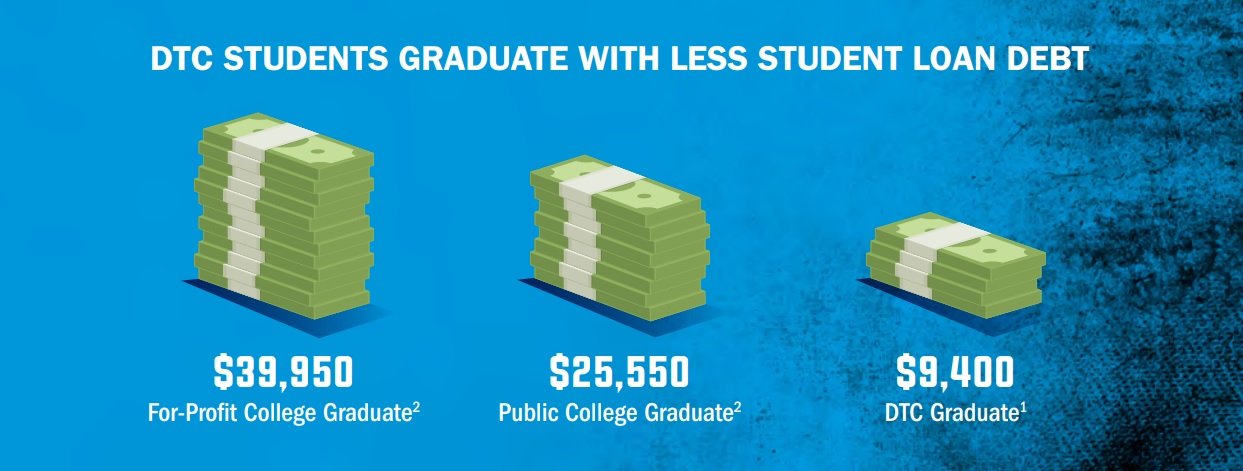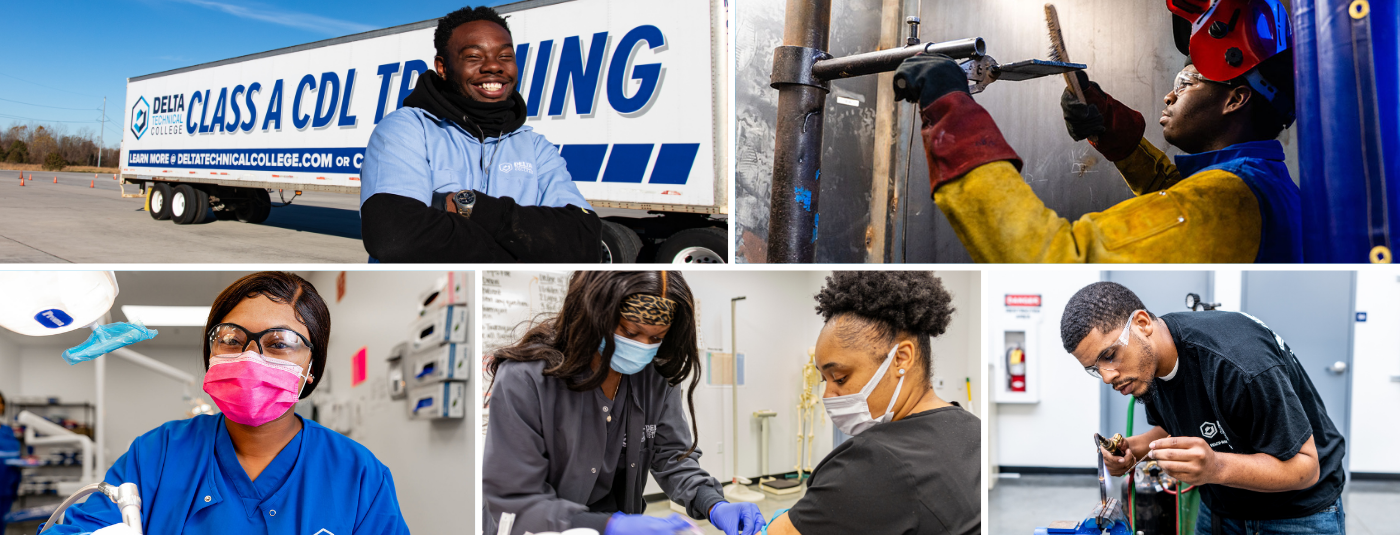Is a trade school better than college?
Generally speaking, trade school isn’t “better” or “worse” than college, but it can be a great fit for people who don’t want to spend several years completing academic study, and would instead prefer a more direct path to an entry-level career. Trade school can prepare students to begin a career in the mechanical trades, skilled trades, or even medical field in less than a year.* Certain trades don’t require a four-year or even two-year degree. Rather, they require specific skills that can be gained through hands-on experience and career training. Trade school can also be a great option for people who:- Enjoy building things, problem solving, and working with their hands
- Learn best through hands-on activities
- Are interested in a career path that can offer travel opportunities — such as welding or truck driving
- Have a passion for a specific trade, skill, or industry — such as cosmetology or healthcare
What are the benefits of trade school?
For students considering entering the mechanical trades, skilled trades, or medical field, gaining hands-on skills training is more relevant to a future career than obtaining a degree from an academic college. Both community colleges and trade schools generally offer vocational training classes, though every campus will vary in the scope and types of programs offered.- Trade schools generally offer a faster track to completion. Trade schools are entirely dedicated to vocational training, while community colleges offer a mix of GED classes, pre-college classes, and vocational classes. At Delta Technical College (DTC), all of our programs and courses feature a curriculum that is a mix of hands-on lab training and classroom theory – with no general education classes. Most programs and courses at DTC can be completed in less than a year, with the exception of the Cosmetology Program, which can last either 13 or 16 months. Comparatively, an associate degree at a community college takes two years to complete, while certificate programs may vary in length.
- There are several career paths within the trades that are in demand. According to the U.S. Bureau of Labor Statistics, some of the occupations with the most job growth through 2029 include medical assistants, nursing assistants, maintenance and repair workers (general), and electricians. There is also a reported truck industry shortage creating increased demand for truck drivers, leading to higher salaries and recruitment among young people and women. DTC offers a 20-week Professional Truck Driving Program and a 20-day CDL Training Course.
- Trade schools are often more affordable than traditional colleges – and trade school graduates typically have less student loan debt. The cost of traditional college is leading students to seek alternatives, such as trade school. Considering that the average Millennial carries $30,000 in student loans, the average trade school costs much less than a traditional four-year college. Also, many trade schools also offer financial aid and scholarship opportunities to students who qualify. For example, DTC’s annual High School Scholarship Program awards scholarships for various amounts at each of our campus locations. Choosing trade school can also mean the student will graduate with less student loan debt and can enter into a profession that is in-demand. Both trade school and college require a certain level of investment. Every school and program will be different, depending on location, program of study, and type of degree awarded.
 Sources: Delta Technical College, 2020 ACCSC Annual Report, Gainful Employment, and Internal Data
as of November 2020 and Forbes, Student Loan Debt Statistics In 2020: A $1.6 Trillion Crisis
Sources: Delta Technical College, 2020 ACCSC Annual Report, Gainful Employment, and Internal Data
as of November 2020 and Forbes, Student Loan Debt Statistics In 2020: A $1.6 Trillion Crisis
Interested in Learning More About DTC?
Fill out the form below to receive info about our career training programs.
Is trade school right for you?
If trade school sounds like it could be the right path for you, you may be interested in exploring trade schools near you. At Delta Technical College (DTC), we offer several resources and opportunities to our students, including:- Instructors with real-world experience who prepare students for a career in the skilled trades, including the medical field, mechanical trades, cosmetology, and truck driving.
- Flexible class schedules that allow students to balance other life commitments, such as another job or family obligations.
- Dedicated Student Success Specialists (SSS) who support each student on their journey from enrollment through graduation, offering assistance with everything from tutoring, test taking strategies, and life skills workshops, to resources to locate transportation, housing, and part-time jobs.
- Lifetime job placement assistance is available to all DTC students who qualify. DTC’s Placement Team identifies individual student’s strengths to match them with job opportunities. Qualified graduates have access to lifetime job placement assistance. DTC works to find employers locally, statewide and/or nationally, allowing the student to explore all options available to them.
- https://www.cbsnews.com/news/high-school-students-grapple-with-lifetime-decision-college-or-the-trades/
https://www.theatlantic.com/education/archive/2019/03/choosing-trade-school-over-college/584275/
How students are trying to avoid college loans
https://www.wpxi.com/news/top-stories/vocational-schools-growing-in-popularity-1/868656157 https://money.usnews.com/money/blogs/my-money/articles/2016-04-12/the-financial-case-for-trade-school-over-college https://www.deltatechnicalcollege.com/about-us/gainful-employment/ https://www.bls.gov/emp/tables/occupations-most-job-growth.htm



